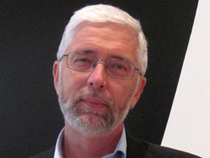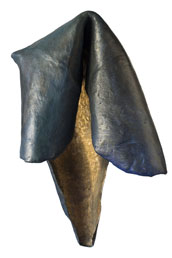A.E.:A writer is also a reader – first. What do you read – beyond research material for ongoing projects?
A.S.: First, research material does eat up a vast amount of reading time for a historical novelist. My last novel required about fifty or sixty books in Lithuanian and maybe a dozen and more in English as well as countless magazine articles. These are all nonfiction, and much more relaxing than fiction. Nonfiction does not have the complexity of subtext that fiction does, but it still takes time to read. Second, I must stay on top of Canadian writing because it is my territory. Therefore I read or at least scan enough of Canadian novels to stay aware and I read the novels of my friends with great delight because I love to see what they are up to – Joe Kertes and Wayson Choy in particular. I want to read everyone who works for me, and since that is about twenty-five writers, it’s hard to keep up. I want to be aware of and even try to read our former students, often a dozen published for the first time each year. As you can see, my reading load is already impossible. I am more often scanning than reading. But I continue to look for books that will make me fall in love with them. I think of Barry Unsworth’s The Songs of Kings, Peter Carey’s My Life as a Fake, David Mitchell’s Cloud Atlas, Rachel Kushner’s Telex from Cuba, the vastly underrated Nino Ricci’s Testament, Shirley Hazard’s The Great Fire, Tom Rachman’s The Imperfectionists and many, many more.
A.E.:It was just election time in Canada. How do you think literature can be a tool for political education in an indifferent electorate?
A.S.: To affect an indifferent electorate you would need to mobilize an engaged readership. This can happen with books such as Lawrence Hill’s The Book of Negroes, a novel whose success is astonishing and heartening. I think novels do change people, but the people’s voting pattern is not necessarily directly involved. Wayson Choy illuminated life in Vancouver’s Chinatown and Judy Fong Bates the isolation of small towns for immigrant families. Will those novels make people vote in a particular way? Perhaps not, but they can help to develop a consciousness out of which sound politics can grow. But you do that by getting the potential readership interested, not by saying that reading is good for them. Reading as a duty makes me shudder.
A.E.: Is it possible to say that the average Canadian’s seeming apathy in the Canadian political scene makes it justifiable to claim that the average Canadian reader is politically unconscious?
A.S.: In my extended family, political views are quite different from one another. We can talk Canadian politics in heated and uncomfortable debate or let politics slide and enjoy the turkey on the Thanksgiving Day table. I think many Canadians want to let politics slide for fear of uncomfortable debate. Quebec is not apathetic if it votes for the Bloc. That action may seem wrong-headed to Anglophones, but it is not apathetic. We have intense regionalism too. Is apathy always bad, or is it worse to have wrong-headed people filled with passionate intensity?
A.E:The characters in Underground cannot be indifferent to politics. Coming from an immigrant background in which citizens have to be political, willy-nilly, and as a father who has a son in the Canadian military, what is your reaction to Canadian politics?
A.S.: To continue my previous response, both Nazis and Communists believed in politics. Engagement in and of itself is not good enough. One must be humane as well. This quality of humanity is what makes Norman Davies first, the late Tony Judt second, and most recently Timothy Snyder fresh in their insights on Eastern Europe. Furthermorene’s engagement with politics is coloured by what is at stake. Because so little seems to be at stake in Canada, many people are unengaged. This may be a shame because I see a rising tide of populism and anger. Why did we become so angry? Are we afraid we are at the end of times and soon there will be shortages of everything? The question should not be ‘Why are you getting so much?” It should be, “How can I and my family get the same?” How to arrive at that destination will spoil many Thanksgiving Day turkeys. As to the question of the military, I have written elsewhere that I have become a fatalist. Every generation produces young men and some young women who choose to be warriors. The rest of us decide where they will die.
A.E.: Thank you for taking time off your busy schedule to talk to MTLS.





No Comments so far ↓
There are no comments yet...Kick things off by filling out the form below.